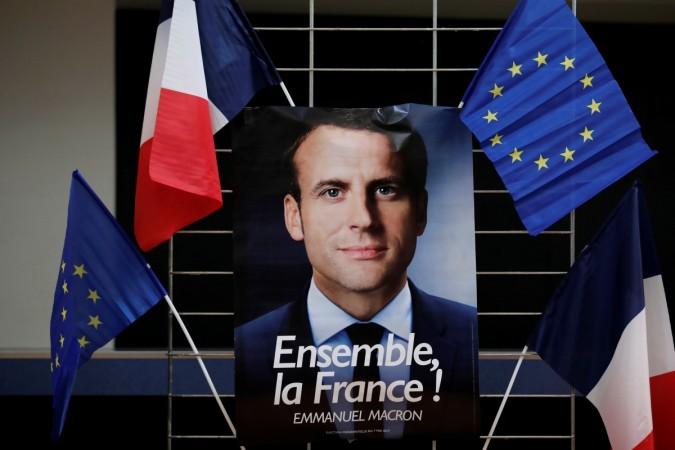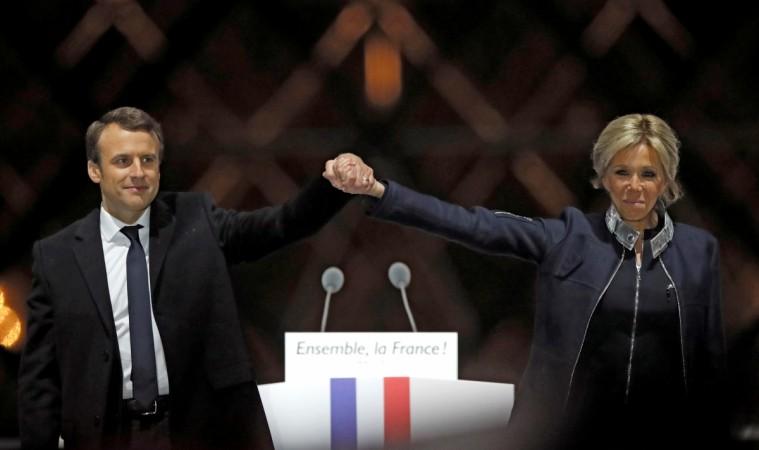
France elected its youngest president in Centrist candidate Emmanuel Macron, who took the far-right candidate Marine Le Pen to cleaners in the run-off round on Sunday. The 39-year-old former investment banker has never held elected office before, and he ran as an independent candidate in the presidential election.
Here are things you should know about France's President-elect:
Macron's early background
Emmanuel Macron was born to a family of doctors on December 21, 1977 in the city of Amiens in Northern France. He, however, decided to branch out from his family leanings and began studying philosophy at Paris Nanterre University.
Macron later studied public affairs at two of the top colleges in France -- Institute of Political Science (Sciences Po) and École nationale d'administration (ENA) -- and eventually began a career in investment banking at Rotschild & Cie. in 2012.

Macron, in 2014, took on the job of minister of economy, industry and digital data under the incumbent French President Francois Hollande. He continued to work for the socialist government for two years but later revolted by starting his own political movement called 'En Marche'.
Macron, during his term as the economy minister, was accused of destroying worker's protection as he promoted measures allowing opening up of regulated sectors in the French economy.
President-elect's unconventional marriage
Macron's marriage was a key talking point in the 2017 French election campaign. The former investment banker married a woman 24 years older to him, Brigitte Macron. Brigitte was Macron's French teacher when he was a student in Amiens. The school teacher, a mother of three at the time, was also the supervisor of the drama club Macron was part of, and that's when their unusual romance took off. Brigitte later moved to Paris with Macron, and they got married in 2007.

Now, at 63, Brigitte supported Macron in his presidential campaign and assisted him in preparing speeches and accompanied him at all the public events.
"We called each other all the time. We spent hours on the phone, hours and hours... Little by little, he overcame all my resistances in an unbelievable way, with patience," Brigitte said in a televised documentary.
Macron's political leanings
Macron has always presented himself as a person who is "neither of the Left or of the Right", and has always maintained that he stands for "France". The former economy minister, however, has mostly stayed on the left side of the social issues. He had also described himself as "liberal" in his book 'Revolution'.

Macron believes in globalisation and has stressed on its benefits throughout the campaign. He is also a strong advocate of a free market and entrepreneurial spirit. The President-elect is also pro-immigration and has spoken about tolerance towards Muslim immigrants. He, however, did acknowledge the extremist threat in the country.
He has also talked about the dangers of online extremism and has vowed to pressurise internet giants like Facebook to monitor cyberspace effectively for extremist threats.
The En Marche leader has pledged that he will boost police, military forces and intelligence services to combat the surge in terror attacks in France over the last few years. Macron is pro-European Union (EU) and has said EU is imperative to improve security throughout Europe.








